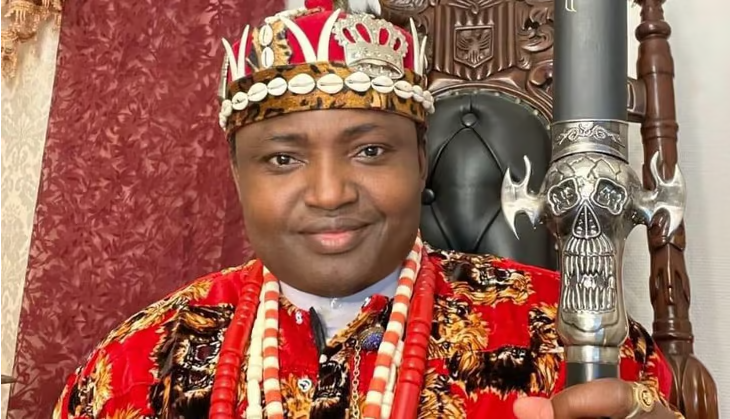Helsinki – Simon Ekpa, a controversial Biafran separatist leader, was arrested in Finland on November 21, 2024. The Finnish Central Criminal Police detained Ekpa under allegations of public incitement to commit crimes with terrorist intent, focusing on his involvement in violent activities in Nigeria’s southeastern region. Ekpa, a vocal advocate for the secession of Biafra from Nigeria, is also accused of using social media platforms to spread separatist propaganda and enforce violent “sit-at-home” orders that have crippled parts of the region. Finnish authorities have linked him to terrorist financing, with investigations implicating multiple suspects in related activities.
The Nigerian government has formally requested Ekpa’s extradition to face charges of terrorism and incitement to violence in Nigeria. Brigadier General Tukur Gusau, Nigeria’s Director of Defence Information, emphasized the importance of bringing Ekpa to justice for his alleged role in destabilizing the region. Finland’s authorities are collaborating with Nigerian officials to determine the next steps in the legal process.
Ekpa’s arrest comes against a backdrop of escalating tensions over Biafran separatism. He is the second prominent leader of the Indigenous People of Biafra (IPOB) to face detention after Nnamdi Kanu, who remains in custody in Nigeria. However, IPOB has publicly distanced itself from Ekpa, accusing him of tarnishing its image and harming the southeastern community with his militant approach. Other separatist groups have reacted cautiously, reflecting divisions within the Biafran movement regarding the use of violence versus peaceful advocacy.
Supporters of Biafra abroad and within Nigeria have expressed mixed reactions. While some see the arrest as a crackdown on their struggle for independence, others hope it will reduce the violence attributed to Ekpa’s directives. The incident has reignited debates about Nigeria’s unity and the role of international actors in addressing separatist conflicts.
Ekpa’s case underscores the complexities of diaspora activism, particularly when it intersects with local insurgencies. His influence as a diaspora-based politician and separatist leader has highlighted the challenges posed by transnational advocacy, raising broader questions about sovereignty, justice, and the ethics of leveraging foreign platforms for domestic disputes.

